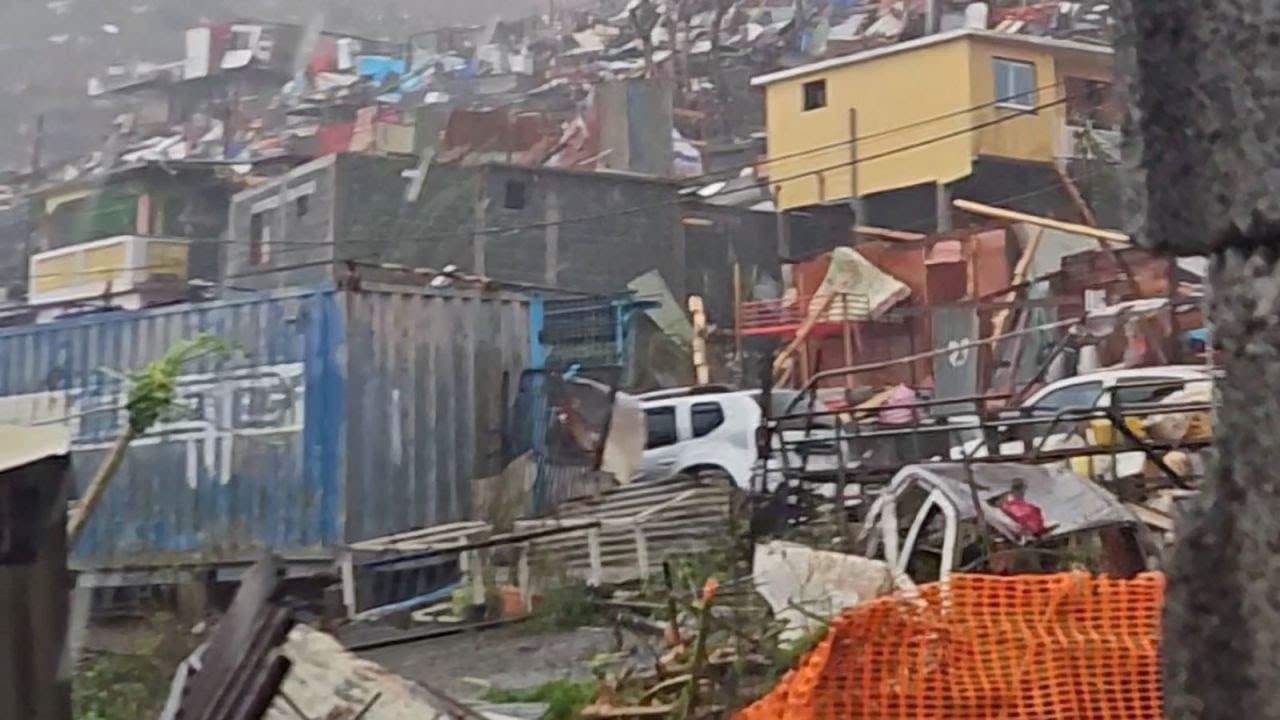Cyclone Chido has wreaked havoc on the French territory of Mayotte, leaving at least 14 people dead and causing damages, local officials confirmed.
The powerful storm, packing winds exceeding 220 kph (136 mph), was described as the most destructive cyclone to hit the island since 1934. “We’re afraid the toll will be high,” said French Interior Minister Bruno Retailleau, following an emergency meeting in Paris.
He cautioned that the casualty count remains provisional as rescuers are still assessing the situation. “The island seems devastated,” he added.
Mayotte, home to over 300,000 people spread across two main islands in the Indian Ocean, saw roofs torn off homes, public facilities damaged, and thousands of residents left without power.
François-Xavier Bieuville, Mayotte’s prefect, called the cyclone unprecedented in its destruction.
“Our island is being hit by the most violent and destructive cyclone since 1934. Many of us have lost everything,” he said in a statement, adding that the highest alert was lifted to allow emergency services to begin relief operations.
Prime Minister François Bayrou, appointed just a day before the disaster, reported severe damage to Mayotte’s hospital, airport, and government buildings, particularly in areas with fragile housing.
“Many people living in precarious shacks in slum areas have faced very serious risks,” he said.
In response, French President Emmanuel Macron stated he was closely monitoring the situation, and the Interior Ministry announced the deployment of 1,600 police and gendarmerie officers to prevent looting and aid recovery efforts.
Additional emergency responders from mainland France and nearby Reunion Island were expected to arrive on Sunday.
French Transport Minister François Durovray highlighted the severe damage to Mayotte’s airport, particularly its control tower.
“Air traffic will first be reopened to military aircraft only,” he said, while supplies were being delivered by sea.
The neighbouring nation of Comoros, located north of Mayotte, was also feeling the effects of Cyclone Chido. Authorities issued the highest alert in some areas, ordered ships to remain anchored, and closed airports, schools, and government offices.
There were growing concerns for 11 fishermen who ventured out to sea earlier this week and remained unaccounted for.
Chido was forecasted to make landfall on the eastern coast of Mozambique by late Saturday or early Sunday, potentially affecting 2.5 million people in Cabo Delgado and Nampula provinces, according to Mozambique’s disaster agency.
Further inland, Malawi and Zimbabwe were bracing for floods and possible evacuations.
Malawi’s disaster management agency urged residents in flood-prone areas to relocate to higher ground, while Zimbabwean authorities advised some communities to prepare for evacuation.
The southeastern Indian Ocean cyclone season, which runs from December through March, saw increasingly destructive storms in recent years. Cyclone Idai in 2019 and Cyclone Freddy in 2023 collectively claimed over 2,300 lives across southern Africa.
Experts warned that climate change was intensifying cyclones, leaving vulnerable countries to grapple with recurring humanitarian crises.
Beyond the immediate destruction, stagnant water from flooding often triggered outbreaks of waterborne diseases like cholera, dengue fever, and malaria.
